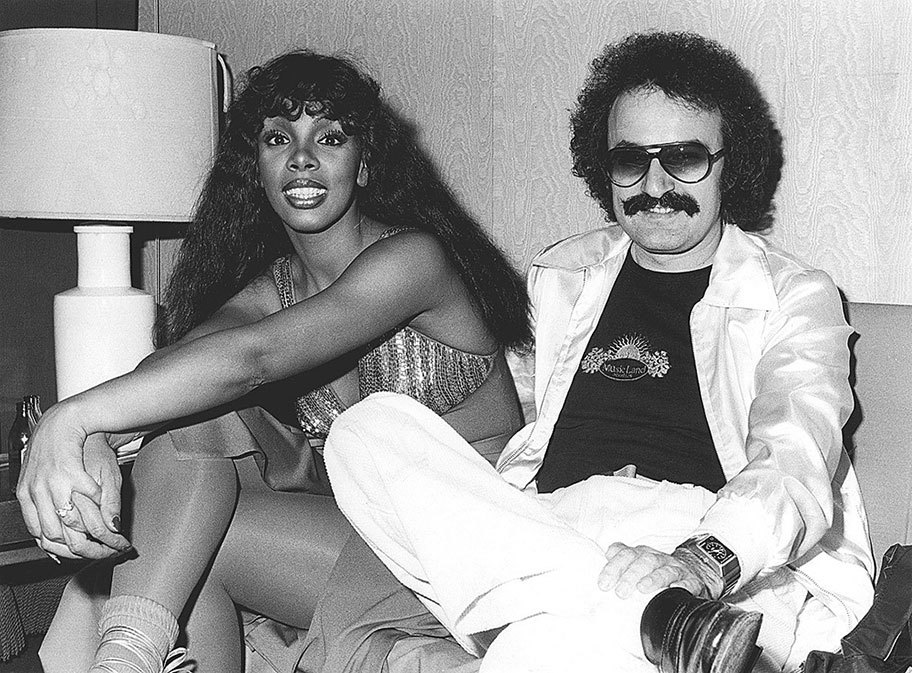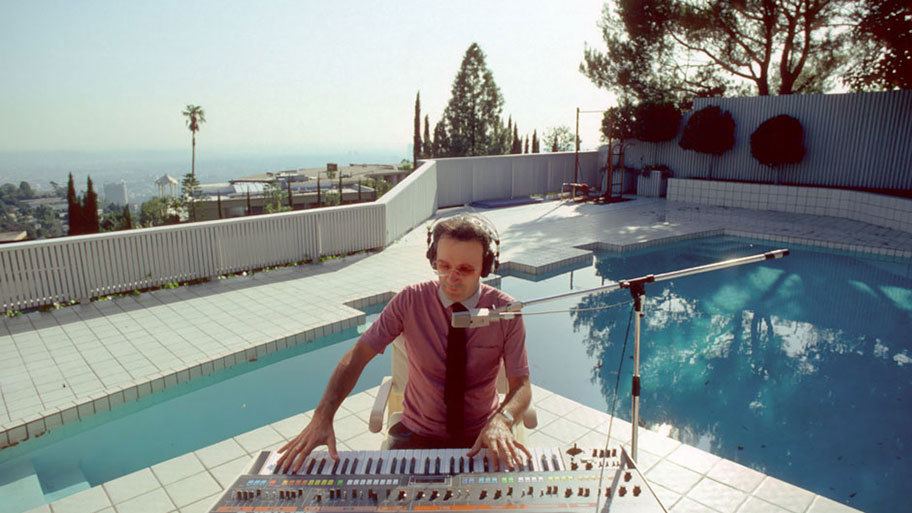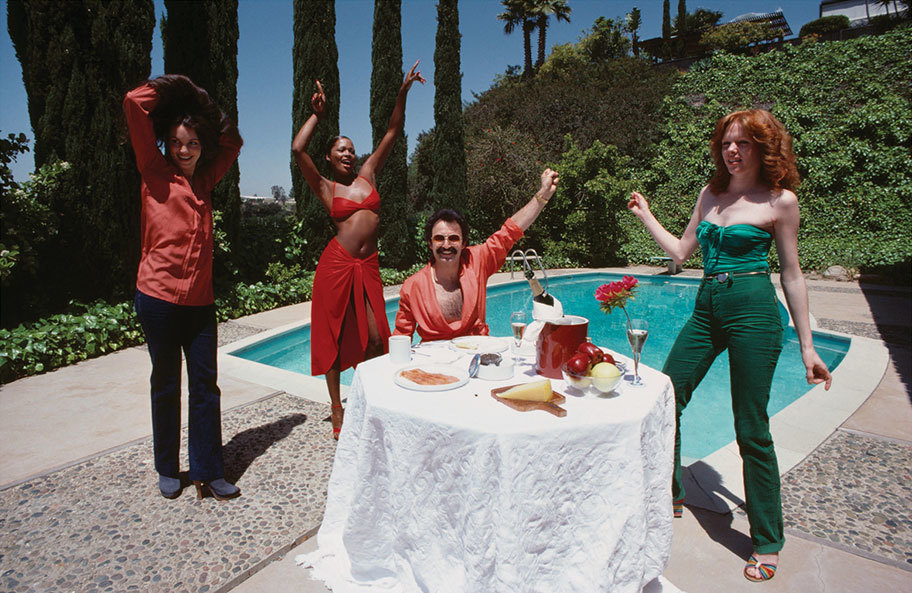There are few artists in the history of pop music that are genuine, irrefutable innovators. Giorgio Moroder is one of them. Born in South Tyrol, Italy in the spring of 1940, he first gave the world Donna Summer in the 1970s; he pioneered the Moog synthesizer to such an extent that there were only three on the entire planet(!) when he first clapped his hands on one; he singlehandedly invented the all-conquering super-spectacle of EDM.
Of course, any of those things would be enough to cement his place in pop’s pantheon. But add to this a series of film soundtracks in the 80s and 90s (Midnight Express, Scarface, and, rather amazingly, The Animals of Farthing Wood) as well as one of the most extraordinary comebacks in recent times (an appearance on Daft Punk’s multi-million selling Random Access Memories in 2013) and Moroder appears like a man who has lived about ten lives; a songwriter/producer extraordinaire with the most iconic mustache in the history of dance.
At 76 years old, Giorgio could be forgiven for saying, “Forget all this disco malarky, I’m off to play golf,” and yet, when we Skype him at his home in L.A., he’s full of excitement for new single “Good for Me” (released on the same Casablanca Records that put out Donna Summer’s 1977 classic “I Feel Love”) and happy to talk about his recent reinvention as the world’s most in-demand septuagenarian DJ. With the release of Space Ibiza: 1989 – 2016, his first ever mix compilation, we spoke to the godfather of dance about clubbing, DJing, and that time he beat David Bowie to the sound of the future.
Space Ibiza recently closed after 27 years. Were you a regular?
Oh, yeah, yeah. I’ve been quite often. The first time I think about four years ago and I must say I was really impressed. It was huge, there was this great DJ, Carl Cox, who I love. I think it was a little too loud but that’s what it is.
You played your first DJ gig three years ago at the age of 73, but you weren’t particularly into clubbing in the 1970s, were you?
Yeah, that’s true. In Munich, when I was composing, recording, I went from time to time. Once every two or three weeks. But mainly to hear a little bit of what’s going on. Not to dance. Sometimes I would have some demo recordings I would ask the DJ to play, then I could see what the reactions of the audience was and continue from there. That was quite good actually. You learn really fast what works.
Which of your songs work best now?
To be honest, it’s the old songs. The number one song is “Call Me” at the end. That’s the best. Then Donna Summer’s “I Feel Love” works well. “Love to Love You Baby” less, maybe because it’s my first song. “Hot Stuff” is good. Then everybody likes to sing “Flashdance.” Of the new ones, [from 2015’s Déjà Vu album] the title track with Sia works well. Kylie works really well. So of the news ones I have, those two, and Charli XCX.

What were the first records that had an impact on your as a listener?
There was definitely one song by Paul Anka called “Diana.” That was probably the first song I was able to sing, and play the guitar to. It’s a very easy song, I didn’t need a great voice. And I was listening to a lot of R&B, black acts. At that time, they had those relatively cheap movies, black and white, Elvis Presley, Bill Haley. I was living in this little town in Italy and whenever that kind of a movie came out I watched it. So the first music that I really liked was Elvis Presley, Gene Vincent, all those guys.
At what point did you start moving from singing and playing the guitar into producing other acts?
Well, I moved to Berlin with the precise idea of becoming a successful singer, producer, composer. Now, with the singing, I had a nice hit called “Looky Looky” which was a bubblegum song, then I had another hit, not worldwide but nice, called “Son of My Father.” But as a singer, I stopped. I didn’t really want to be at the front and sing. I would forget the lyrics. I think I did one show where I was the opening act for The Hollies but the musicians that I used were not good. So I said, “That’s it. I’m staying behind the scenes.”
How much has the music industry changed since then?
It is completely different. First of all, so many people are involved. Two or three composers. Two or three producers. Sometimes you don’t even meet the singer. For example, with Sia, I had the tracks done with part of the melody. I gave her the tracks, she sang it, wrote the lyrics, the topline, the harmonies. And she even gave me a good mix! A lot of stuff is done over email. It’s totally, totally different now. But it is what it is… When you sit for hours and hours in the studio with a singer, it’s sometimes hard to stay objective.
Thinking back to those hours in the studio… You mentioned “Call Me” earlier. What was working with Blondie like?
Oh, that was great. I composed the song [“Call Me”] with the title “Man Machine” or something like that. I gave it to Deborah, she was in New York. She calls me back, she loves the song. So I went to New York and recorded it with the guys. We put down a click and it was great. I had no big problems, the only problem was the drummer, Clem Burke, was a little overwhelming. He had a fill every two bars. Finally we had a deal where I said, okay, every eight bars you can get one of your great fills in. And, yeah, Deborah sang it and I took it back here. We remixed it but I don’t think we edited anything. It was perfect.
Is there anyone you would have liked to have worked with but didn’t manage to? Have there been many missed chances?
Oh, there were so many. I know that there was some interest from Duran Duran before they did the big album. I started but it didn’t work out with Aha. In terms of movies, after I won the Oscar for Midnight Express, Alan Parker wanted me to do Fame. So I read the script but I didn’t understand it. I didn’t think it was bad but I didn’t understand what the movie was all about so I passed on it and it became one of the most iconic films. There are probably ten groups or singers which I didn’t like or didn’t like me. Sometimes you meet the singer and you talk and sometimes it happens and sometimes it doesn’t.
Is there a certain producer trick for making it work?
I think I’m really easy. I did so many tracks with Donna Summer and that was all set from the first day, let’s say. But in general, I don’t think there’s a special trick… You just have to be sensitive. If you tell them, “Okay, can you sing it again?”, it’s not that you didn’t sing well, it’s just for safety. That’s a little trick. But I must tell you, with Freddie Mercury that was a bit of a problem. I was not intimidated but, you know, he’s such a big, big artist. Singer, actor, producer, composer, pianist. That was a little more difficult. You have to be really careful.
You clearly had such a great relationship with Donna Summer. Did you know how special “I Feel Love” was when you first recorded it?
Yes. First of all, when I came up with the idea of doing a song that sounds like “the future,” I said let’s play everything with the synthesizer. So I started with the bass line which was really difficult because we were out of tune all the time. We’d record for ten seconds. Stop. Tune. Redo it. It was more like technical work than musical. But when the tracks were done, I played it to Donna and she started just to sing. Donna was a real joker, she loved to do funny things so she said, “Okay, this is good,” and started to sing, “Ooooh, I feel love, I feel love, I feel love, I feel love, I feel love.” Basically, I don’t know how deep the lyrics were but it worked quite well.
And it did sound like the future! David Bowie said that when Brian Eno first heard it he ran in and said, “I have heard the sound of the future.”
Yeah. I just found out a few years ago that Bowie and Eno were in Berlin recording, but especially trying to find the “new sound.” Berlin at that time was a big hub of creative people and drugs and all that stuff. So they were looking for a new sound and that’s when Eno ran in and said, “Let’s stop, David! Giorgio found the sound!” That’s quite nice.

Do you think much about your legacy, and how you hope you’ll be remembered?
I’m happy with what I did. At the beginning, the disco image was not that great but now disco is accepted. Dance music is overwhelmingly successful with EDM. I did great movies. Three Olympics. I even did a religious song that I hear from time to time. Except for a musical, I really don’t know what else I could do.
Finally, Giorgio, what are the essential elements of a perfect pop song?
Luck. You just have to get lucky.
“Space Ibiza: 1989-2016” mixed by Giorgio Moroder, Erick Morillo, and Mark Brown is out now.
Credits
Text Matthew Whitehouse
Images via giorgiomoroder.com
